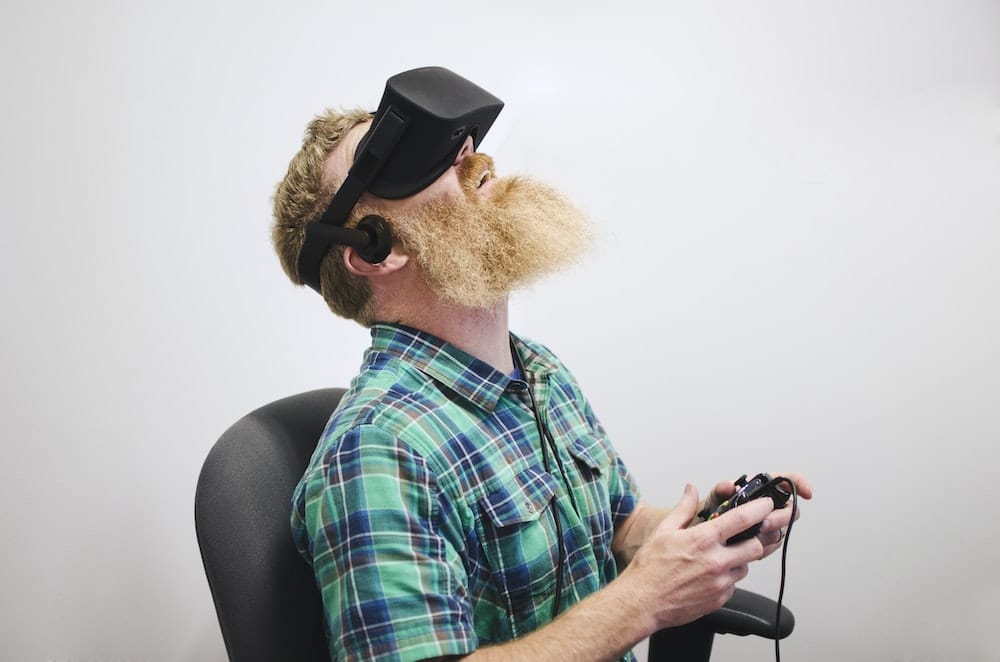How to leverage virtual reality for remote real estate investment site visits and evaluations?

Virtual reality (VR) is no longer restricted to just gaming or entertainment. It has found its way into various sectors, including real estate. As you delve into the world of property management and investment, you’ll find that VR technology can offer a transformative experience, especially in the time of remote work and social distancing measures.
From showcasing properties to prospective buyers to enabling remote site visits and evaluations, VR technology is revolutionizing how the real estate market operates. In this context, we will explore how to harness this cutting-edge technology to facilitate remote real estate investment site visits and evaluations.
A voir aussi : What strategies can real estate professionals employ to enhance the sustainability of their projects?
The Role of Virtual Reality in Real Estate Marketing
Long before the pandemic forced businesses to rethink their operational strategies, forward-thinking real estate agents were already leveraging virtual reality to foster a more immersive property viewing experience.
Investing in a property, whether for personal use or investment purposes, is a significant decision. Most buyers want to spend time exploring the property, checking out every nook and cranny, and envisioning their life in it. VR allows them to do just that without leaving their homes.
Avez-vous vu cela : How can real estate developments be designed to support the well-being of residents in high-density urban areas?
By offering virtual tours, real estate agents can provide potential buyers with a comprehensive view of the property. Buyers can "walk" through the property, inspecting each room and even the view from the windows. As a result, VR technology helps condense the time-consuming process of property viewings into a more manageable task.
Further, VR tours provide a wealth of data to real estate agents. Such tours can record where the potential buyer spends the most time or what features they zoom in on. This data can help agents tailor their marketing efforts to suit the preferences of their target audience.
Enhancing Property Management with Virtual Reality
VR technology is not merely a tool for marketing; it offers tremendous benefits for property management as well. With the help of virtual reality, property managers can perform a range of tasks remotely that previously required physical presence.
For instance, property inspections and maintenance checks, which traditionally required an on-site visit, can now be done virtually. A 360-degree VR tour can help property managers take note of any repairs or maintenance necessary, saving them time and potential travel costs.
More importantly, in the realm of property investment, investors can evaluate potential investment properties without ever setting foot on the premises. Virtual tours offer a substantial amount of detail, allowing investors to make informed decisions even from miles away. This feature is particularly useful for international investors, who can now explore and evaluate properties across the globe without leaving their home country.
The Future of Real Estate Investment with Virtual Reality
Looking ahead, the role of VR in real estate is set to become increasingly significant. As the technology becomes more advanced, both buyers and investors will be able to have an even more immersive and realistic experience.
Imagine putting on a VR headset and feeling like you’re actually walking through a property, running your hands over the marble countertops, opening the kitchen cabinets, or even smelling a freshly brewed coffee in the kitchen. With haptic feedback and other advanced VR features, this could well be the future of real estate shopping.
For investors, this means a more comprehensive understanding of the property before making an investment. You’ll be able to walk through every room, check out the neighborhood, and even inspect the property at different times of the day – all from the comfort of your own home.
Preparing for the VR-Driven Real Estate Market
As VR continues to reshape the real estate landscape, it’s crucial for both buyers and investors to adapt to this new reality. For one, understanding the basics of VR and its application in real estate will be imperative.
For real estate agents and property managers, investing in VR technology and developing VR tours for your properties is a worthwhile endeavor. Existing VR platforms make it relatively easy to create immersive property tours, even for those without technical expertise.
For buyers and investors, familiarizing yourself with VR tours and learning to navigate them will be key. As more properties are showcased through VR, being comfortable with this technology will make for a smoother property buying or investment process.
In the VR-driven real estate market, the possibilities are endless. It’s an exciting time for property buyers, real estate agents, and investors alike. With VR, the world of real estate is quite literally at your fingertips. So, put on that VR headset and step into the future of real estate investment.
Utilizing Data Analytics and Augmented Reality for Property Inspections
Data analytics have become a vital part of many industries, including real estate. As we’ve already covered, virtual tours can generate a wealth of data for real estate agents, notably by tracking the areas where potential buyers spend the most time. In addition to tailoring marketing strategies based on these insights, the data can also be used for more effective property inspections and management.
With the integration of augmented reality (AR) in virtual tours, property inspections can become even more detailed and accurate. Augmented reality adds digital elements to a live view, such as visual cues highlighting potential areas for maintenance or repair. This blend of virtual reality and data analytics can significantly enhance property inspections, making them more precise and efficient.
For instance, if a potential buyer spends a significant amount of time looking at a specific area, this could indicate interest, or it could suggest a concern about that particular feature. By analyzing this data, property managers can address any potential issues prior to an actual site visit.
Moreover, real-time property inspections can be carried out using VR and AR, allowing estate professionals to assess a property as if they are physically there. With the combination of VR, AR, and data analytics, both the frequency and quality of property inspections can be improved.
The Impact of Social Media and Real Time Communications on the Real Estate Industry
The real estate industry has not been immune to the social media revolution. In fact, social media platforms have become crucial tools for estate agents to reach out to potential buyers and investors. When combined with VR technology, social media can amplify the benefits of virtual property tours.
Social media platforms allow real estate agents to share virtual tours with a wider audience. This visibility not only increases the chances of selling a property but also attracts a broader range of investors. Furthermore, platforms such as Facebook and Instagram have integrated VR features, allowing users to experience virtual property tours directly on their newsfeeds.
Real-time communication is another aspect that is dramatically reshaping the real estate industry. With VR, potential buyers and investors can walk through a property alongside the agent, discussing features, asking questions, and getting immediate responses, despite being miles apart physically.
The combination of these technologies provides an unprecedented level of convenience and efficiency. For the real estate industry, this means a more expedited process, reduced costs, and increased satisfaction for all parties involved.
Conclusion: Embracing the Future of Real Estate Investing
The merging of virtual reality, augmented reality, data analytics, and real-time communication into the estate market is not just a trend—it’s the future of real estate investing. This combination of technologies offers myriad benefits, ranging from time and cost savings to more effective marketing and property management techniques.
While VR technology is still evolving, its potential in transforming the real estate industry is immense. As the technology advances, we can expect even more realistic and immersive experiences, blurring the line between virtual and physical property tours.
However, to fully leverage these benefits, both buyers and investors need to embrace this technological revolution. Whether it’s understanding the basics of VR and AR, learning to navigate virtual tours, or integrating these technologies into their marketing strategy, adapting to the VR-driven real estate market will be crucial.
Indeed, the real estate industry is in an exciting phase of digital transformation. With innovations like virtual reality, augmented reality, and data analytics, the future of real estate investing is here. So, put on that VR headset, embrace the technology, and step into the future of real estate.
